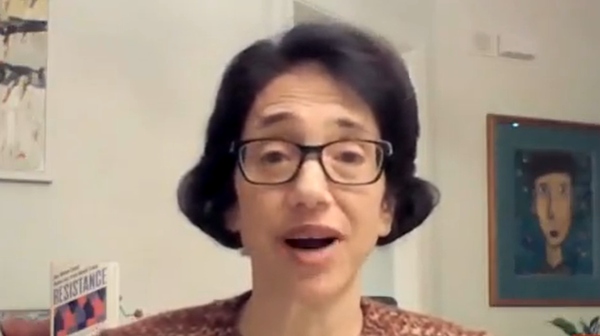“Internet freedom” advocacy group NetChoice called out for promoting social media censorship
05/03/2021 / By Franz Walker

An organization that claims to promote free speech on the internet has quietly been promoting censorship online. Trade association NetChoice has been called out for promoting social media censorship in its blog posts.
According to Breitbart, recent blog posts by NetChoice’s policy counsel have argued against the notion that major tech platforms should be designated as common carriers. As part of this, it stated that forcing social media platforms to carry all legal speech would lead to firehose obscenity.
“Making it illegal for social media platforms to moderate content would result in a Mad Max-style, anything-goes internet,” reads the post. “Children would be subjected to some of the worst parts of the internet and platforms would be powerless to create safe ecosystems free from unwanted, offensive, and profane material. People just trying to watch cat videos or connect with their family over Facebook would be forced to wade through a sea of unseemly content, such as racist posts or pornography.”
NetChoice doesn’t support choice on the internet
As part of the report, Breitbart‘s Allum Bokhari points out that NetChoice’s position is “not remotely true.” He points to Google’s “safe search” button as an argument against the group’s position, as it would not be affected by common carrier rules.
He writes out that common carrier rules would not prevent social media platforms from “building filters against certain types of speech (including hate speech).” Instead, what those rules would mean is that filters like Google’s safe search would be “optional to the user.”
Common carrier rules then would still allow for content moderation. The difference would be that Big Tech companies, including social media sites such as Facebook and Twitter, would not be able to impose any particular moderation regime on anyone.
“That would instead be the user’s choice,” Bokhari points out, noting the irony of an organization named “NetChoice” not supporting something that allows for choice.
Organization also opposed Florida’s anti-censorship bill
NetChoice’s blog posts are not the only time the group has revealed its true, pro-censorship colors. In recent months, the organization has come out against Florida’s House Bill 7013.
The bill, which was approved by the Florida House Appropriation’s Committee back in March, cracks down on social media companies that block users from their platforms.
Specifically, HJB 7013 would prevent social media companies from blocking political candidates in Florida from all platforms. In addition, it would also require these companies to publish standards about issues such as blocking users and apply the standards consistently.
In opposing the bill, NetChoice stated that it would expose social media platforms to lawsuits for removing harmful content. In addition, the organization stated that such a bill “violates conservative principles of limited government and free markets.”
More importantly, the group claimed that HB 7013 violated the First Amendment.
“The First Amendment makes clear that government may not regulate the speech of private individuals or businesses,” it wrote in its statement. “This includes government action that compels speech by forcing a private social media platform to carry content that is against its policies or preferences.”
Proponents of the bill, such as its sponsor Florida House Rep. Blaise Ingoglia, say that it is needed so that social media companies are forced to be transparent and display consistency and accountability.
“The vast majority of Americans think Big Tech is inappropriately censoring people,” said Ingoglia. “We need transparency, accountability and consistency.”
Follow BigTech.news for more on what tech companies are doing to retain their ability to censor points of view they disagree with.
Sources include:
Tagged Under: banned, Big Tech, Breitbart, Censorship, free internet, internet, internet censorship, InternetCensorship, lies, netchoice, propaganda, Social media, tech giants
RECENT NEWS & ARTICLES
COPYRIGHT © 2018 SPEECHPOLICE.NEWS
All content posted on this site is protected under Free Speech. SpeechPolice.news is not responsible for content written by contributing authors. The information on this site is provided for educational and entertainment purposes only. It is not intended as a substitute for professional advice of any kind. SpeechPolice.news assumes no responsibility for the use or misuse of this material. All trademarks, registered trademarks and service marks mentioned on this site are the property of their respective owners.




















